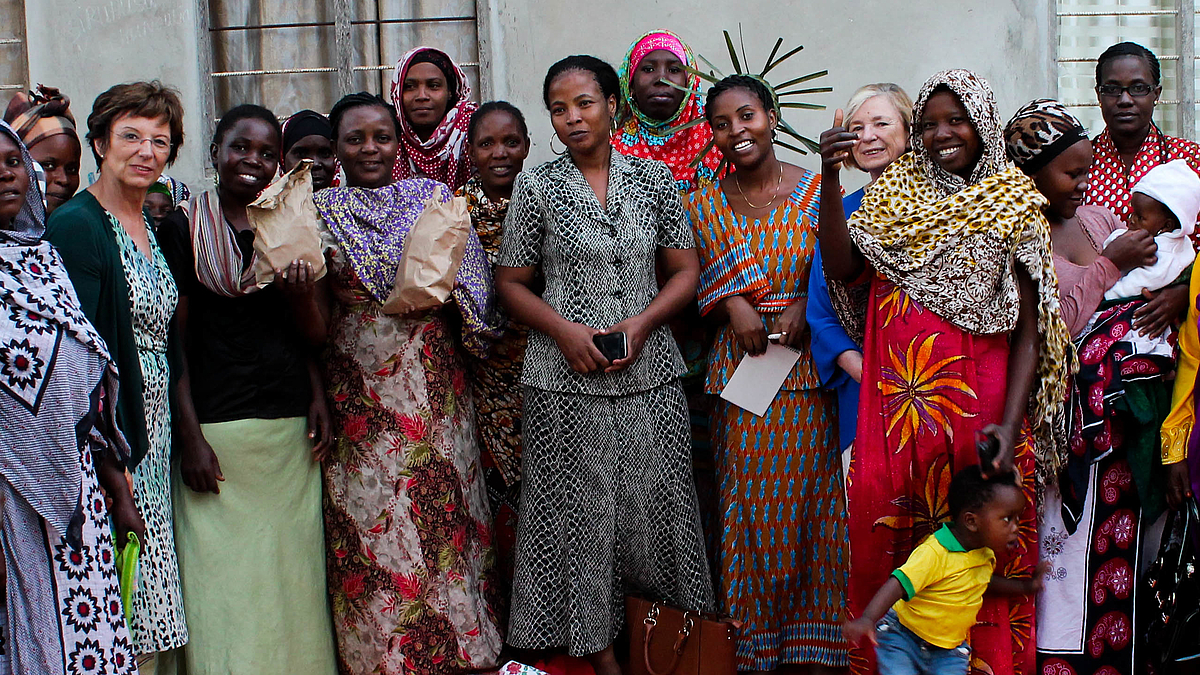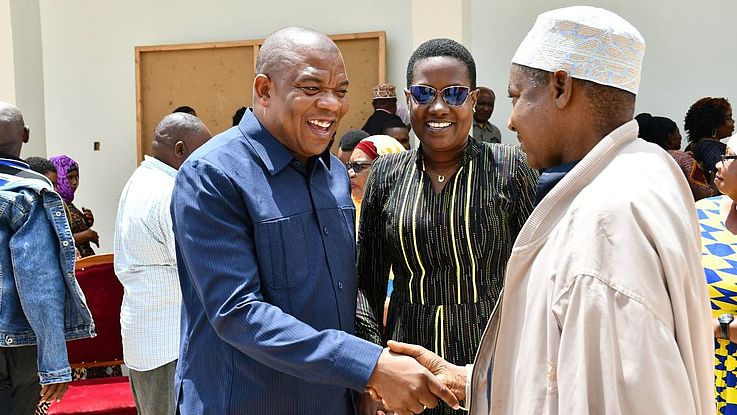Women Political Empowerment
The government of Tanzania recognizes that women play a significant role in the country’s development efforts. The country has therefore deliberately undertaken efforts to reserve seats for women representation in local and national decision making levels. However, Equal participation of women in decision making processes has not yet been achieved. Therefore, one focal area of our work is the empowerment of women within the political arena. Current programs include:
- Women Political Leadership Training (WPLT) for women who desire to actively engage in politics. Within this program aspirants are trained over a period of several years how to compete professionally with their male counterparts for political positions. HSF has been partnering with the Center for Good Governance and Economic Development (CGG&ED) to carry out these trainings within all regions of Tanzania for more than 10 years now.
- Councilors Training and Mentoring: Together with Integrity Watch (IW) we offer tailor made training courses for elected representatives in order to equip them with relevant skills to improve their performances on the local level. We thereby pay special attention to gender mainstreaming aspects in local level decision making processes. Furthermore mentoring is offered to female participants.
- Support to female Parliamentarians through joint consultations and tailor made trainings in order to increase relevant competences and capacities which will enable them to become effective leaders both within and outside the parliament.
- Women Leaders – Power of Change: In collaboration with Women Fund Tanzania (WFT), Good Governance and Economic Development (CGG&ED) and the Office of the Registrar for Political Parties (ORPP) we are implementing an EU co-funded project since 2017 which contributes to the achievement of SDG 5, target 5 in Tanzania: Ensure women’s full and effective participation and equal opportunities for leadership at all levels of decision-making in political, economic and public life. Further information on the project can be found here.
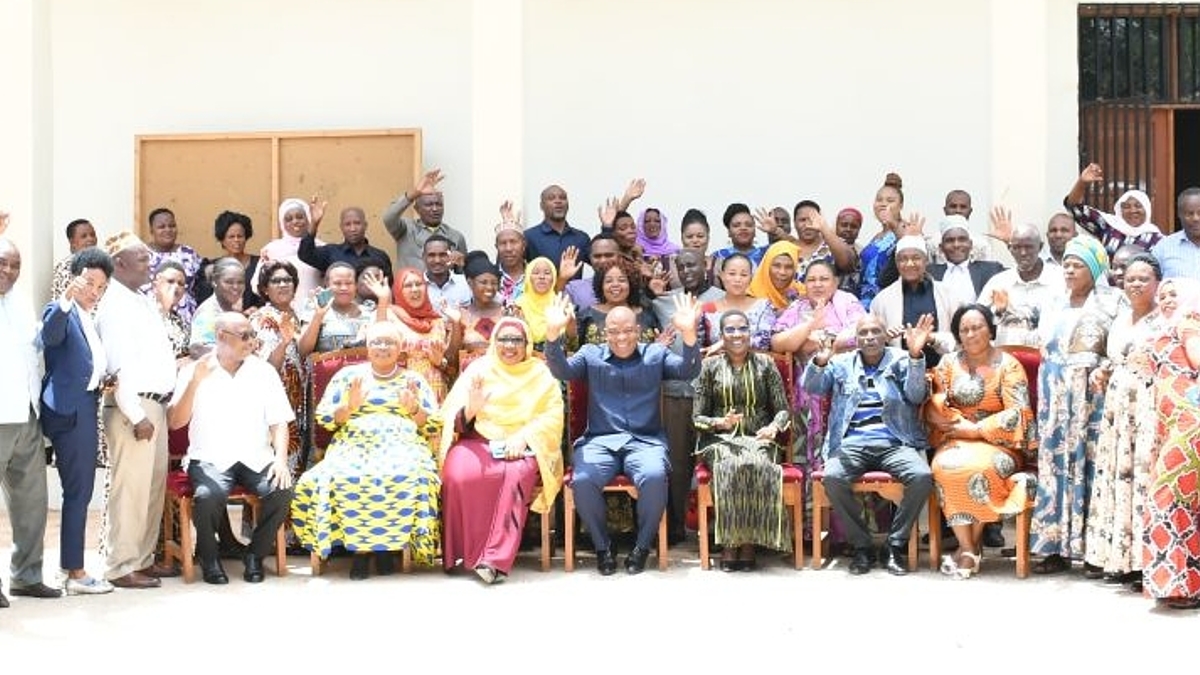
Councilors Training in Dodoma Region Phase II
Hanns Seidel Foundation (HSF) in collaboration with its partner Integrity Watch (IW) conducted a three-day councilors training at Dodoma City Council Hall in Dodoma Region on March 31st to 2nd April 2022. The training was attended by 60 councilors, 41 female and 19 male. The councilors were drawn from Kondoa District Council (19 male and 9 female), Kondoa Town Council (5 female), Bahi District Council (8 female), Kongwa District Council (7 female) and Mpwawa District Council (10 females). The training covered a wide range of themes, which included but not limited to the following: Structure and powers of local governments, land matters in local government, public finance expenditure tracking systems in local governments, good governance and the fight against corruption, protocols, and gender budgeting.
This training was a continuation of a similar training that Hanns Seidel Foundation in collaboration with Integrity Watch conducted in 2021 in Dodoma region whereby 40 women councilors from Chamwino District Council, Dodoma City and Chemba District Councils were trained. After this second training, HSF and IW have thus trained all 82 female councilors in Dodoma region; the challenge ahead is then for the beneficiaries to put in practice what they have learned.
Hon. Anthony Mtaka, the Regional Commissioner for Dodoma region who officiated the training urged the local councilors to be active players in stimulating economic, social, educational, and political developments the in local governments. He commended the training and called on Hanns Seidel Foundation and Integrity Watch to support some more capacity building training for local councillors in Dodoma.
The training was officially closed by Hon. Dr. Khamis Athumani Mkanachi, the District Commissioner of Kondoa District. In his closing remarks, he challenged the councilors to put in practice what was learned from the training. In his view, the training would contribute immensely to improve the working relationship among various development actors in the councils and contribute to solving socio-economic challenges in the local settings. Dr. Mkanachi commended Hanns Seidel Foundation and Integrity Watch for developing a hand-book for trainees to learn beyond the training.
Hanns Seidel Foundation and Integrity Watch since 2017 have conducted similar training in various regions of Tanzania mainland including Mwanza, Geita, Tabora, Shinyanga, Simiyu, Arusha and Mara regions. The total number of participants covered in these regions is 405 (360 female and 45 male). This huge difference in the ratio between female and male participants is because the main target group of training program is female councilors who are underrepresented in district councils.
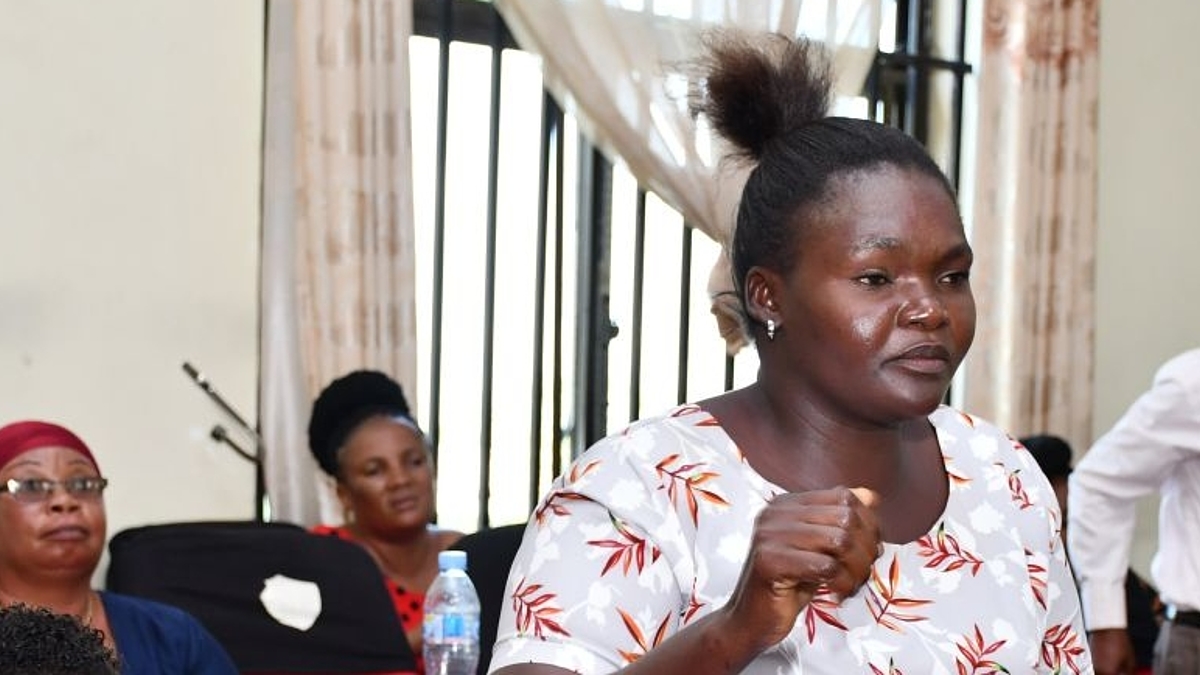
Councilors Active Participation in the training
The councilors in Dodoma region actively participating in asking questions to the facitilitators in the areas where they had no understandig at all or where their understanding was limited. Hanns Seidel Foundation and Integrity Watch have observed the limited knowledge among councilors particulary on the local government standing orders, structure and powers of local governments, the local government land matters as well as the protocols. The councilors training has been instrumental in capacitating the councilors on these important and practical issues on their local government leadership practice.
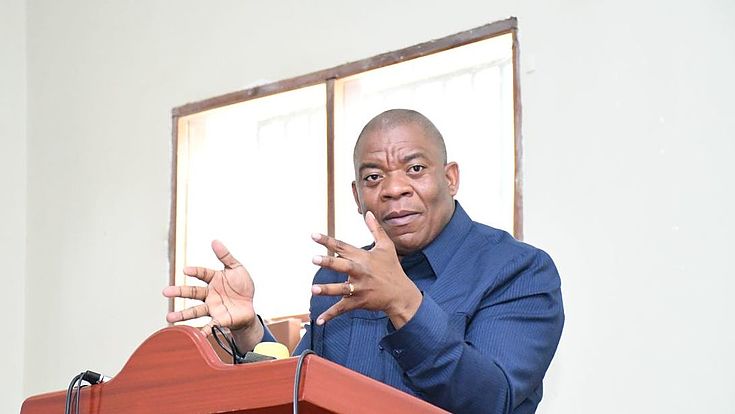
The Regional Commissioner for Dodoma region officiating the councilors training.
Hon. Anthony Mtaka, the Regional Commissioner for Dodoma region who officiated the training urged the local councilors to be active players in stimulating economic, social, educational, and political developments the in local governments. He commended the training and called on Hanns Seidel Foundation and Integrity Watch to support some more capacity building training for local councillors in Dodoma.
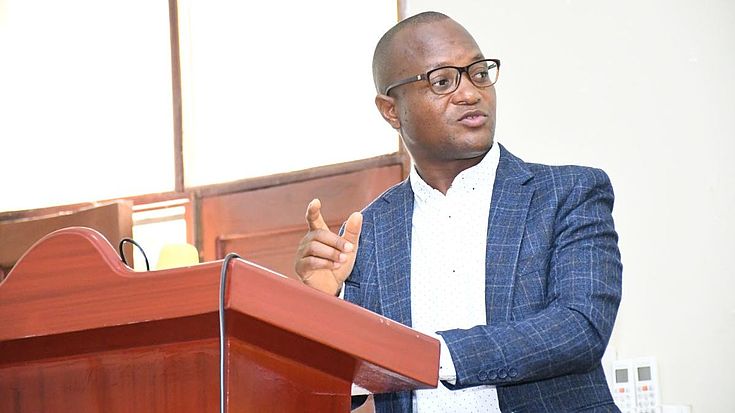
The structure and powers of local governments.
Dr. William John Walwa, Ph.D. Senior Lecturer, Department of Political Science University of Dar es Salaam, emphasizing a point on the structure and powers of local governments during the councilors training in Dodoma region.
Impressions of the Councilors Training in Dodoma
Partners
Center for Good Governance and Economic Development (CGG&ED)
The Center for Good Governance and Economic Development (CGG & ED) is a registered non-profit organization running good governance and economic development training and consultancy services in various areas in Tanzania.
The overall objective of CGG & ED is to support potential and existing elected and appointed local government leaders in their mandate in line with the principles of Good Governance and efficient leadership.
The partnership of CGG & ED with HSF mainly focuses on capacity building programs for women in the political arena. In this regard the CCG&ED is a important partner in the current EU co-funded project Women Leaders - Power of Change.
Integrity Watch (IW)
Integrity Watch (IW), formerly known as Center for Civil Society and Strategic Studies (CCS & SS), is a non-profit organization, affiliated to the Department of Political Science at the University of Dar es Salaam. Its work is dedicated to the fight against corruption and promotion of public accountability as a means towards achieving democratic consolidation.
The partnership with IW mainly focuses on capacity building activities for elected representatives at the district level on principles of Good Governance and gender mainstreaming. In addition a mentorship program is offered for female councilors.
Tanzania Women Parliamentary Group (TWPG)
Tanzania Women Parliamentary Group (TWPG) is a registered Non-Governmental Organization that operates within and outside the parliament. Its members consist of all female parliamentarians, regardless of their political affiliation or whether they were elected, appointed through special seats or nominated by the President.
TWPG is aiming at increasing the number of female delegates as well as their potential influence on political decision making. In this respect, the organization strives to implement the resolution of the African Union (AU) and of the Southern African Development Community (SADC) of attaining equal women representation in decision making organs.
The HSF entered into a partnership with the TWPG to support and enable TWPG establish the necessary organizational and personnel structure in order to promote long-term gender equality.
Women Fund Tanzania (WFT)
Women Fund Tanzania (WFT) is the umbrella association for Tanzanian women’s right organizations. It comprises a national network of members as well as established lobbying structures. During the constitutional reform WTF played a leading role for the collection and integration of concerns related to women rights.
The organization is a partner for the implementation of the EU co-funded project. Within this project WFT will establish a database and publications about several initiatives for women political empowerment in Tanzania.
Office of the Registrar of Political Parties (ORPP)
The Office of the Registrar of Political Parties (ORPP) is the state institution responsible for the registration of political parties in Tanzania. Furthermore, ORPP is a supervisory body for the compliance with legal frameworks by political parties. The planned extension of the ORPP’s mandate after the adoption of two new legislative initiatives should pave the way for a greater control over the promotion of women within political parties. The organization is a partner of the EU co-funded project EU co-funded project Women Leaders - Power of Change. Within the project ORPP will be strengthened in their effort to monitor and publish the participation of women within political parties.

